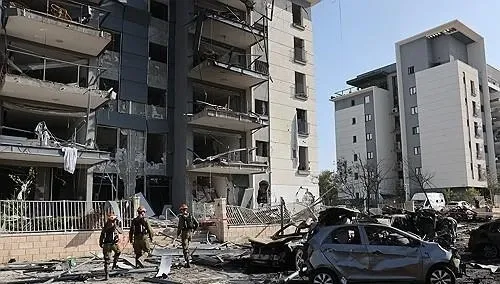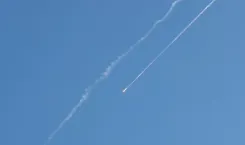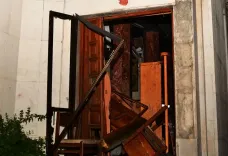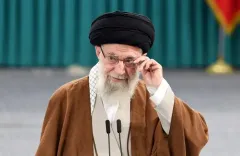Why Did North Korea Condemn US Strikes on Iran's Nuclear Sites?

Synopsis
Key Takeaways
- North Korea condemned US military actions against Iran.
- The strikes were seen as violations of sovereignty.
- US claims aimed to address nuclear threats from Iran.
- The situation escalates tensions in the Middle East.
- Close ties exist between North Korea and Iran.
Seoul, June 23 (NationPress) On Monday, North Korea strongly criticized the US military's airstrikes on Iran's nuclear facilities, asserting that these assaults are a breach of a sovereign nation's security and territorial integrity.
The North Korean foreign ministry released a statement denouncing the US's actions as it engaged in warfare against Iran by conducting precise attacks on three vital nuclear locations in the Islamic Republic.
"The Democratic People's Republic of Korea firmly condemns the US assault on Iran, which has profoundly violated the UN Charter ... and brutally undermined the territorial integrity and security interests of a sovereign nation," stated a spokesperson from the North's foreign ministry, according to the Korean Central News Agency.
The ministry attributed the ongoing turmoil in the Middle East to an "inevitable outcome" resulting from Israel's "reckless audacity," holding both Israel and the US responsible for escalating tensions in the region.
"The global community must raise a unified voice in condemnation and rejection of the confrontational actions of the US and Israel," the North's ministry emphasized.
North Korea and Iran are recognized for their close relationship while both face international sanctions concerning their weapons programs.
Previously, Pyongyang condemned Israel's actions against Iran, labeling them a "despicable act," as reported by Yonhap news agency.
In the lead-up, the US and Iran exchanged harsh accusations during an emergency session of the United Nations Security Council following the US strikes on three major Iranian nuclear facilities, an operation that has captured worldwide attention and raised concerns about the potential for broader conflict.
In her remarks to the Council, a day after US President Donald Trump confirmed the strikes on the Fordow, Natanz, and Esfahan nuclear sites, acting US Ambassador to the UN, Dorothy Camille Shea, stated that the strikes were intended to dismantle Iran's nuclear enrichment capabilities and mitigate the nuclear risk posed by what she termed the "world's foremost state sponsor of terror."
"This operation aimed to eradicate a longstanding but rapidly escalating source of global insecurity and to support our ally Israel in our inherent right to collective self-defense as per the UN Charter," she continued.
Shea accused Iran of consistently obstructing transparency in its nuclear activities, claiming it has "stonewalled good-faith efforts" in recent negotiations.
"For four decades, the Iranian government has called for 'Death to America' and 'Death to Israel' and has remained a continuous threat to the peace and security of its neighbors, the US, and the entire world," she added.
Shea cautioned Tehran against further provocations, warning, "As President Trump stated, any Iranian attack—whether direct or indirect—against Americans or US military bases will be met with severe retaliation."









